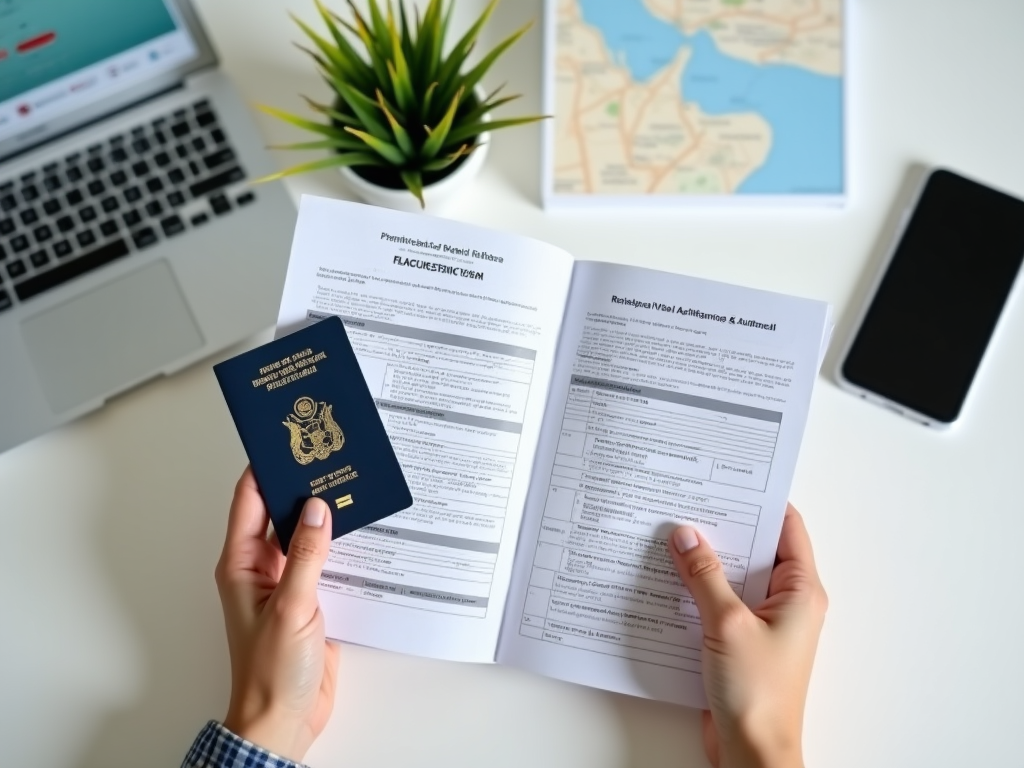Securing a residence visa in Dubai is a priority for many expatriates wishing to live and work in the emirate. The eligibility criteria are defined by the UAE government and can vary based on various factors such as employment status, sponsorship, and family connections. In this article, we will explore the essential requirements that individuals must meet to obtain a residence visa, ensuring a smooth transition to living in this dynamic city.
Understanding the Types of Residence Visas in Dubai

Before diving into the eligibility criteria, it’s crucial to understand that Dubai offers several types of residence visas. These include employment visas, investor visas, family sponsorship visas, and student visas. Each type of visa has its own set of requirements, affecting your eligibility based on your current status. Here’s a breakdown of the most common types:
- Employment Visa: Usually provided by an employer in Dubai.
- Investor Visa: Granted to those who invest in UAE businesses or property.
- Family Sponsorship Visa: Allows residents to sponsor family members.
- Student Visa: For individuals pursuing education at UAE institutions.
Understanding these categories will guide you in determining which visa suits you best based on your eligibility. Each visa type opens distinct opportunities and may require different documentation.
General Eligibility Criteria

The general eligibility criteria for securing a residence visa in Dubai revolve around various factors, including employment status, financial stability, and legal compliance. Here are the key points to consider:
- Employment Status: A valid job offer with a registered company in Dubai is often crucial, particularly for employment visas.
- Financial Requirements: Proof of financial stability or income is essential to ensure self-sufficiency during your stay.
- Health Insurance: Comprehensive health coverage is mandatory for all residents.
- Character Certification: A clear criminal record certificate is required for new applicants.
- Medical Fitness: Undergoing and passing a medical fitness test is a fundamental requirement.
Meeting these criteria will significantly enhance your chances of being granted a residence visa. Each point ensures that the individuals entering Dubai contribute positively to the community.
The specific requirements for the residence visa can vary widely depending on the type of visa you are applying for. Here’s a more detailed look at what may be required for the different visa types mentioned earlier:
- Employment Visa:
- Offer letter from a Dubai employer.
- Educational certificates.
- Passport copies and photographs.
- Investor Visa:
- Proof of investment in UAE properties or businesses.
- Emirates ID and a valid passport.
- Family Sponsorship Visa:
- Proof of employment and salary details.
- Documents proving your relationship with the sponsored person.
- Student Visa:
- Confirmation letter from the educational institution.
- Proof of financial support.
Understanding these specific requirements helps to streamline the application process, ensuring that you have all the necessary documentation ready for submission.
Important Documents Required for Application
In addition to meeting the eligibility criteria, applicants must prepare various important documents to complete their residence visa applications successfully. Here’s a comprehensive list of documents that are commonly required:
- Valid passport with at least six months of validity.
- Passport-size photographs that meet UAE specifications.
- Employment contract or company sponsorship letter.
- Proof of medical fitness including health insurance documents.
- Relevant educational or professional certificates, attested if necessary.
- Commitment to abide by local laws and regulations.
Attaining these documents ensures smoother processing and avoids delays, making your journey to obtaining a residence visa more manageable.
Conclusion
Securing a residence visa in Dubai involves understanding the eligibility criteria and ensuring that you have the correct documentation prepared. By familiarizing yourself with the various visa types, their specific requirements, and the essential documents needed, you can successfully navigate the application process. Ultimately, meeting all requirements not only expedites obtaining your residence visa but also sets you up for a fruitful experience in one of the world’s most vibrant cities.
Frequently Asked Questions
1. Can I apply for a residence visa in Dubai without a job offer?
Yes, you can apply for a residence visa without a job offer if you qualify under other categories, such as investment or family sponsorship.
2. How long does it take to process a residence visa in Dubai?
The processing time can vary but typically takes anywhere from a few days to several weeks, depending on the type of visa and completeness of your documentation.
3. What health check is required for a residence visa?
A medical fitness test, including a blood test and chest X-ray, is required to ensure that applicants are free from communicable diseases.
4. Is health insurance mandatory for a residence visa?
Yes, comprehensive health insurance is a mandatory requirement for all residence visa applicants in Dubai.
5. Can I sponsor my family members for a residence visa?
Yes, as a resident in Dubai, you can sponsor your family members for a residence visa, provided you meet specific eligibility criteria such as income and accommodation requirements.